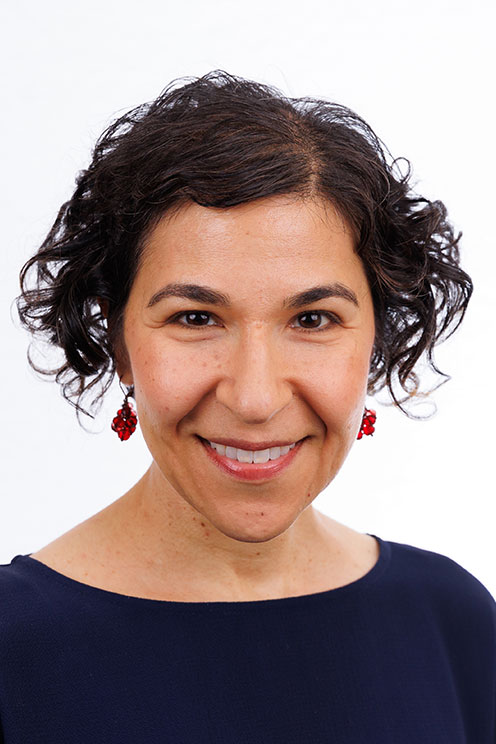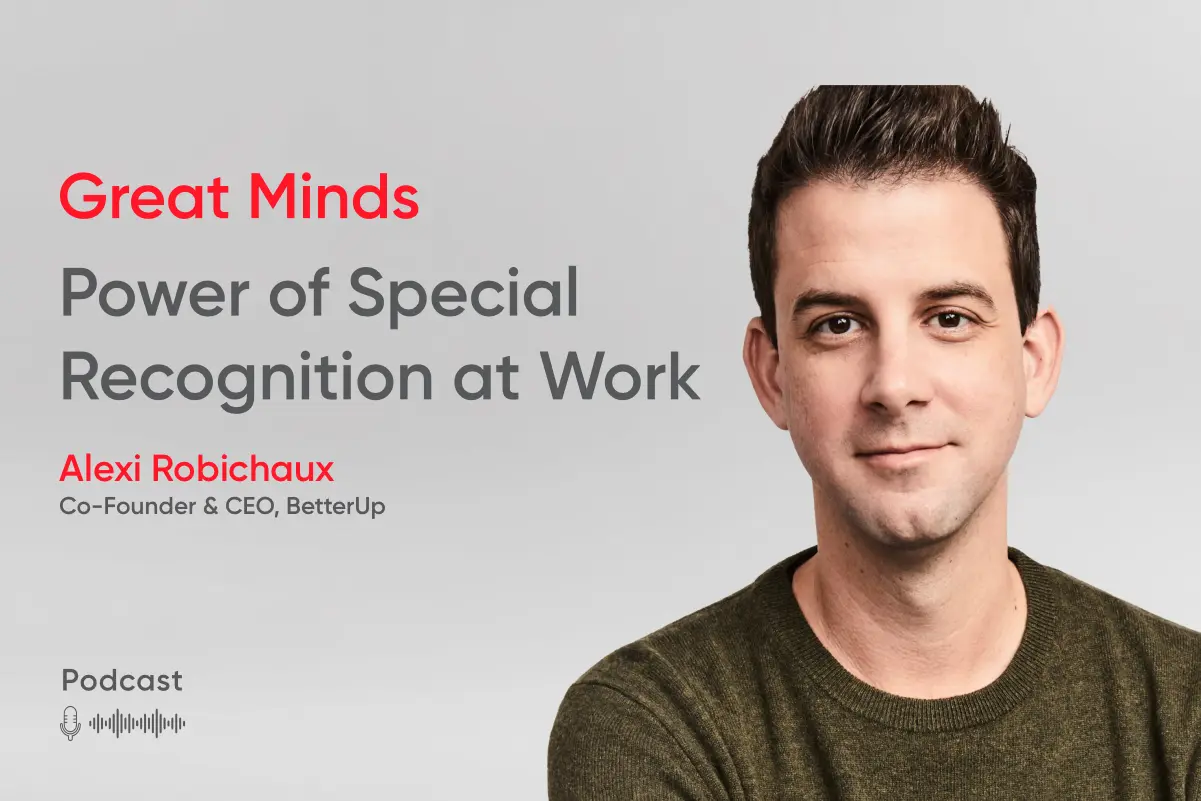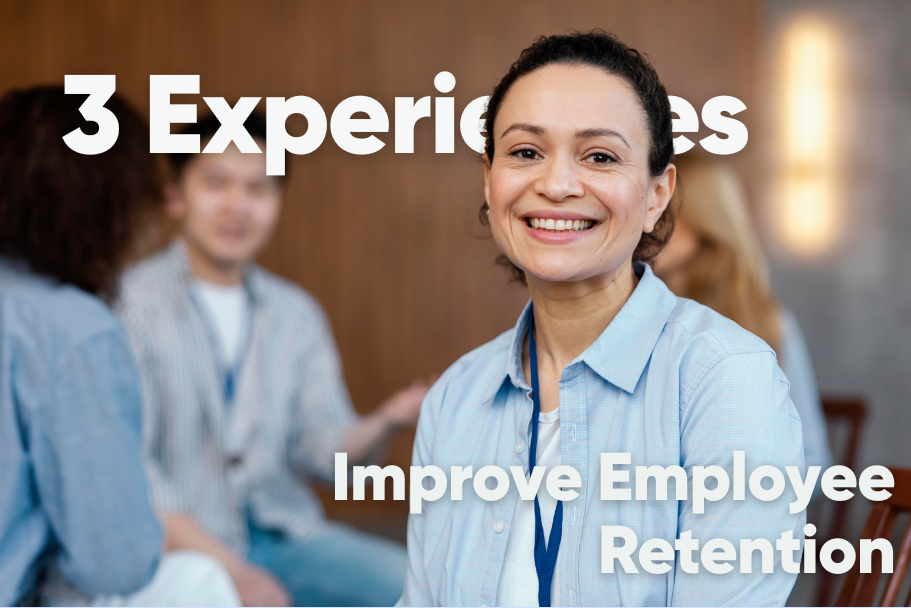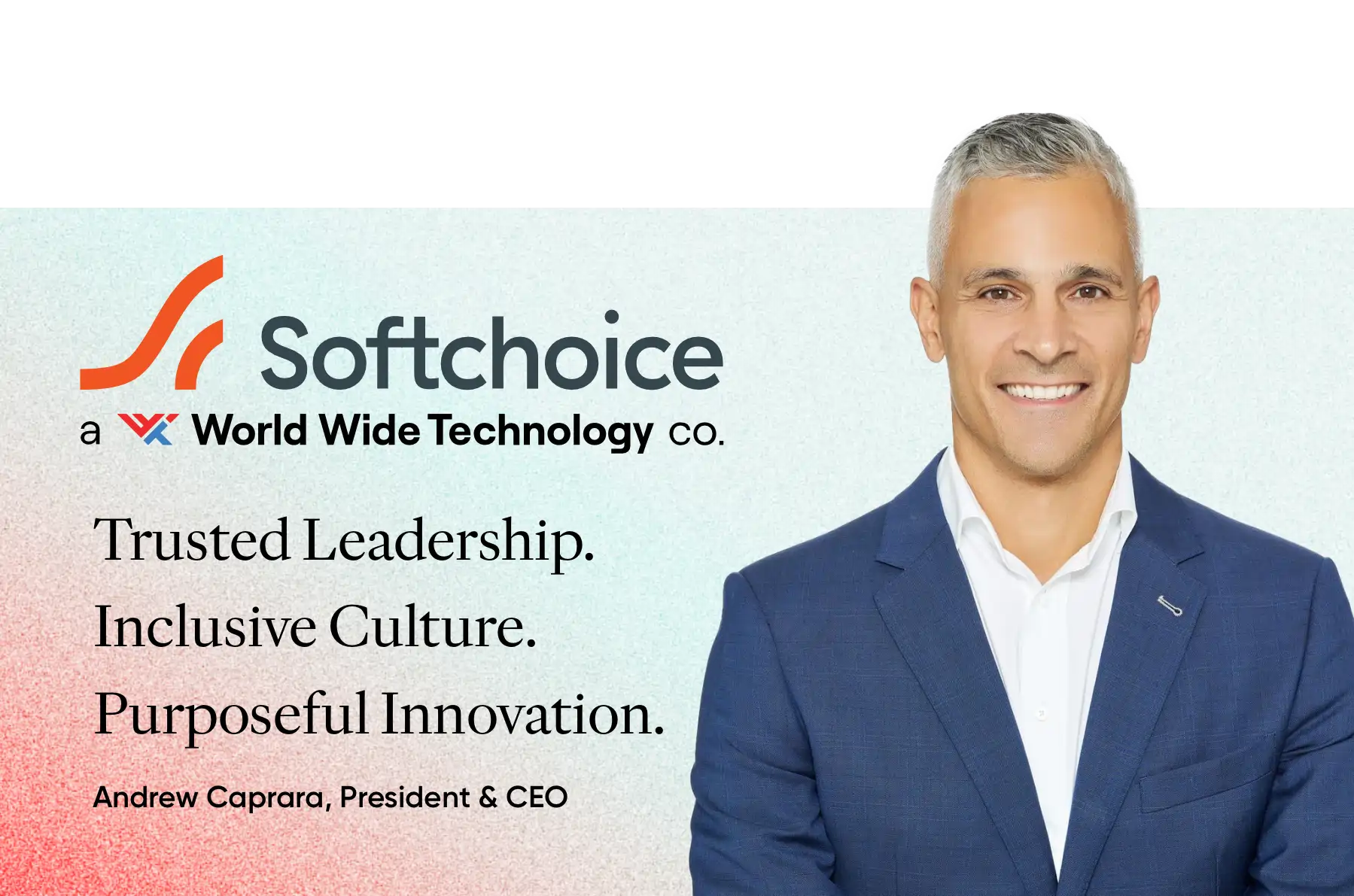“Recognition is the most powerful driver of discretionary energy and effort.”
On this episode of the Great Minds podcast, Alexi Robichaux, co-founder and CEO of BetterUp, talks about the power of inner work, the most powerful way to recognize your people, and the connection between meaningful work and giving extra at work.
Podcast Highlights
- Power of Recognition: Recognition drives discretionary effort. Simple gestures like congratulatory emails can motivate employees and serve as learning examples for others.
- Impact of Inner Work: Inner work, such as reflection and strategizing, helps employees optimize focus and creativity, enhancing their outputs.
- Meaningful Work: Work feels meaningful when it aids personal growth. Managers play a key role in showing employees how their tasks align with the company’s mission.
- Camino de Santiago Influence: Alexi’s pilgrimage helped him reconnect with his purpose, leading to the creation of BetterUp to help others realize their potential.
He shares why we should stop thinking of managers as supervisors and more as catalytic converters, and the three jobs everyone at BetterUp has. (Hint: the job they’re hired for is the last on the priority list.)
On the importance of special recognition:
Employee recognition is the most powerful driver of discretionary energy and effort.
The most powerful thing I've seen is what functional leaders have done by sending out weekly emails, recognizing some of the best work in their departments.
It recognizes that employee, and for everyone else, it's vicarious learning and role modeling.
The job to be done as a CEO isn’t to delegate this because you need to do it at these symbolic levels. How do you inculcate a culture and model where you have functional leaders when you're not even thinking about it doing it?
I get copied on emails all the time from functional leaders where they're celebrating an employee and they copy me on it. And it's a one sentence reply. "Amazing. This is awesome. Congratulations." Now their functional leader has it. They've copied the CEO or my co-founder Eddie, and they're getting that.
That's cheap, that's fast, but that's powerful. And the cheapness doesn't demean that it's the salt of life. This is the zest that makes people want to come to work every day and makes them feel as they should – like their contributions matter.
On inner work:
It’s a contrarian thesis that by doing less, people will be more focused — they'll prioritize better, centralize better, and create more creative outputs. We’ve found that to be tremendously true.
I talk with a lot of leaders and you'd be surprised how few meetings they have. They’re doing inner work, whether they call it that or not. They're strategizing, they're doing white space sessions, they're defragging their hard drives of their mind. They're making big decisions.
It's not idle time. You're working. You're just not working outside of yourself, you're working inside of yourself. When you've nailed that inner game, the outer game is so much easier.
So, we don't just pay you for the outer work where the output shows up. We, to be fair, want to pay you for the inner work.
People do that with nature walks, meditation, or just by doing things that really help them get in the zone and think and really gel with their values. Whatever the case may be, inner work is about optimizing your inner game, which of course shows up in a better outer game over time.
On what makes work meaningful to people:
We found that work was the most meaningful for people when work felt like it contributed to their growth and development. Then we looked at how management can play a role. We found the the single most important thing management can do is simply communicate to people that is important to you that their work is meaningful. Telling people, "Hey, it's really important that your work matters” makes work matter more.
It's not a slight of hand because you have to be genuine about it, but it's deceptively simple.
It has to start with senior leaders connecting what you're doing to the mission of the company, and how that is improving society and how that is improving people's lives. It starts with senior leaders and it needs to go down to the management level to permeate on a day-to-day basis and persist.
On how the Camino de Santiago trail in Spain influenced his career:
I often joke my journey to BetterUp started when I was 17. On night and weekends, while I was a young overwhelmed, burning-myself-out-executive in Silicon Valley, I was still volunteering with a nonprofit that I helped start in high school called Youth Leadership America where we did after school peer-to-peer based mentorship and coaching on leadership and life skills for high school students.
What happened as I took the time off is I returned to my true north, which was helping people build meaningful lives and helping them grow and develop. I walked across most of Spain and I returned to my true north, which was helping people realize their potential. That was the genesis of BetterUp.
FAQs
- What is the most effective way to recognize employees at work?
Alexi highlights that simple, consistent recognition, like a congratulatory email from leaders, can significantly boost motivation and model positive behavior. - What is ‘Inner Work,’ and why is it important?
Inner Work involves reflection and personal growth activities, which help employees optimize focus and creativity, ultimately leading to improved performance. - How does BetterUp create a sense of meaningful work for its employees?
By connecting employees’ tasks to their personal growth and the company’s broader mission, BetterUp ensures that work feels meaningful and impactful. - What inspired Alexi Robichaux to create BetterUp?
Alexi’s pilgrimage on the Camino de Santiago trail reconnected him with his purpose, motivating him to build BetterUp to help people realize their potential.
Tools & Resources
- Company Culture: Building a strong company culture begins with trust, flexibility, and employee engagement. Learn how to create an inclusive and high-performing culture that resonates with your workforce by exploring our resources.
- Employee Engagement: Employee engagement is driven by providing flexibility and opportunities for meaningful work. Discover strategies to enhance engagement in your organization with our expert insights.
- Leadership & Development: Leadership plays a critical role in building trust and driving employee success. Explore how to develop strong leaders who foster collaboration, innovation, and engagement with our programs.
- Diversity and Inclusion: A diverse and inclusive workplace strengthens employee trust and contributes to long-term success. Learn how to create a more equitable environment through our initiatives.
Feedback
Your insights are important to us! We’re always striving to improve, and we’d love to hear your thoughts on how this article resonated with you. Did the strategies discussed help you think about hybrid work differently? Is there something you’d like to learn more about? Please share your feedback or suggestions with us. Together, we can continue to create valuable resources that support your success. Have feedback? Let us know by filling out this form, click here.
Get
Certified 
Think your company is a Great Workplace? Get certified today to make it onto our best workplaces lists.

Original Podcast Published by Great Place To Work® USA : Click here to visit the page.






